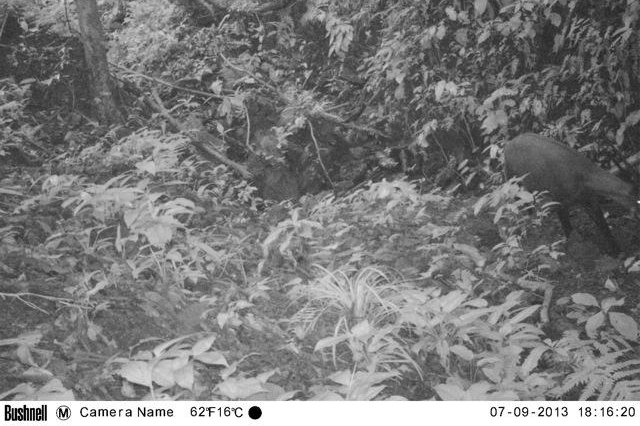1 of 2 | Camera trap photo taken on September 7, 2013 a single saola, bottom right, moving along a forest valley stream in the Central Annamite mountains of Vietnam. (Credit: WWF-Vietnam)
Nov. 14 (UPI) -- Environmentalists have sighted the saola, one of the rarest and threatened mammals in the world, deep in the forests of central Vietnam.
The elusive saola, which has evaded environmentalists for the last 15 years, is so rare that there may be only a couple dozen to a few hundred of them.
Discovered first in 1992 on the Laos-Vietnam border, the animal is so elusive it is called "Asian Unicorn", though it is recognized by two parallel horns with sharp ends. The saola is a cousin of the cattle but looks like an antelope.
“When our team first looked at the photos we couldn’t believe our eyes. Saola are the holy grail for South-east Asian conservationists so there was a lot of excitement,” said Dr. Van Ngoc Thinh, the World Wildlife Fund's Country Director in Vietnam.
The last confirmed sighting of the animal was in 1999, from camera-trap photos taken in Laos. In 2010, villagers in the same region captured a saola but it died before researchers could reach it.
There have been serious efforts to protect the saolas' habitat from illegal hunting and snares. Researchers feel this is a sign that these efforts are working and will help in making an estimate of its population.
“Since 2011, forest guard patrols in the CarBi area have removed more than 30,000 snares from this critical saola habitat and destroyed more than 600 illegal hunters’ camps. Confirmation of the presence of the saola in this area is a testament to the dedicated and tireless efforts of these forest guards,” said Dr. Van Ngoc.
[CNN]
[World Wildlife Fund]















